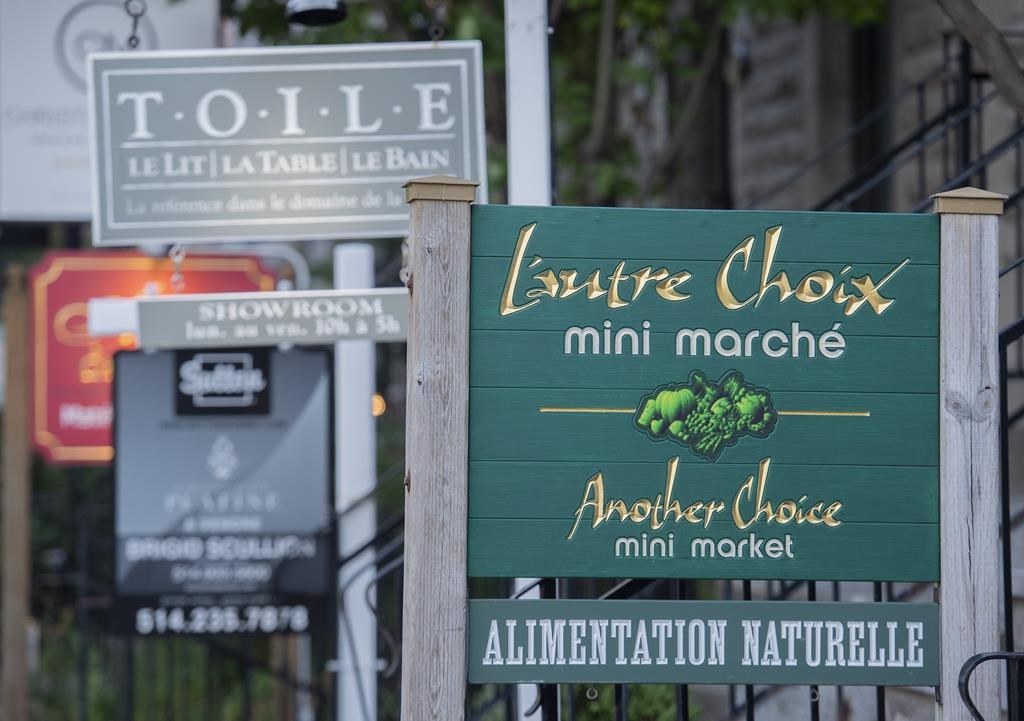Canadians disappointed by updated breast cancer screening guidelines
Posted June 4, 2024 10:46 am.
Last Updated June 4, 2024 6:46 pm.
Montrealer Antonietta Gelfusa is among many Canadians disappointed by the latest update to the national breast screening guidelines.
“So upsetting because you’re not showing the seriousness of the disease,” said the breast cancer survivor.
The Canadian Task Force on Preventive Health Care released its recommendations on May 30, saying people in their 40s shouldn’t be routinely screened for the disease, but also shouldn’t be stopped from getting a mammogram if they want one.
“Had I started earlier, perhaps I would have been diagnosed earlier,” Gelfusa said. Same thing for my sister who passed away, as you know already. And I know many women who’ve been diagnosed in their mid-20s, late-20s, early-30s.”
Gelfusa, who previously shared her story, fought her battle against breast cancer after losing her sister to the same disease. Both women were diagnosed with cancer in their early 40s.
“Forty-three and my oncologist had told me that the actual tumor had been there more or less three years. So in my 40s, it had begun. What about your sister? My sister was diagnosed at 43 and it was already seven centimetres, so long before three years. It started in her late 30s,” said Gelfusa.

The Canadian Cancer Society is also calling for breast screening to routinely begin at age 40, a target many provinces and territories are moving toward, as well as other countries around the world.
“We heard loud and clear from particularly breast cancer patients who were diagnosed in their 40s that these guidelines were not working for them and that they were not reflecting the lived experience that they had,” said Kelly Wilson Cull, the director of advocacy at the Canadian Cancer Society.
“We have seen the U.S. task force for example just finalize actually its guidelines on breast cancer screening, calling for systematic screening starting at age 40. We’re seeing a growing body of international evidence that’s talking about the fact that cancers are being diagnosed at a younger age. And in Canada, 13 per cent of all breast cancer diagnoses are happening within the ages of 40 to 49.”
READ MORE: National task force not lowering age for routine breast cancer screening to 40
Many say this kind of approach leaves patients with the burden of advocating for themselves, navigating a system constantly dealing with a shortage of health professionals.
“We also know that we are dealing with a primary care crisis in Canada,” said Cull. “We know that many, many Canadians do not have access to a primary care physician. And so that leaves people who want breast cancer screening in a position of having to advocate for themselves to be able to access that screening. And that assumes that you even get in the door of a primary care office or that you get access to that kind of primary care.”
Canada’s health minister has asked for an accelerated external review of the independent task force by chief medical health officers from across the country.
“There isn’t a woman that I’ve spoken to today who’s OK with these recommendations. I’m deeply concerned with the way in which this process unfolded,” said Minister Mark Holland.
“I think it’s essential, as though it’s our arm’s length, for this panel to be reviewed, for its processes and its membership to be reviewed so that we can make sure that when it comes to preventative health Canadians are getting the best, most up-to-date, modern advice.”
“I am glad that they’re proposing and they’re letting people know that you can get a mammogram referral if you’re worried,” added Gelfusa. “And I think it’s very important and it’s up to you to be an advocate for your health because if you only follow what the health system tells you, you may be too late.”



